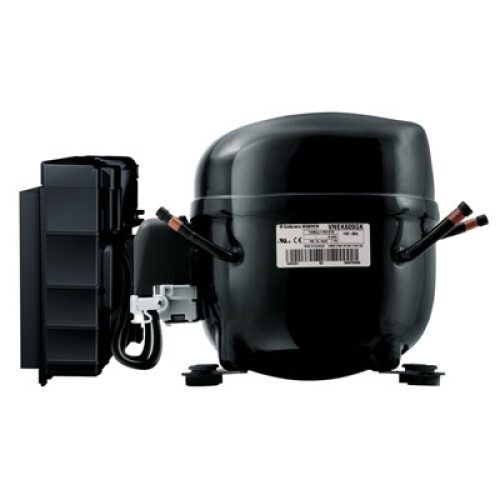Compressors
Compressors: the beating heart of cooling systems
Compressors are vital components in cooling systems, essential for the efficient and reliable operation of residential, commercial, and industrial applications. These mechanical devices are responsible for compressing the refrigerant, enabling the heat transfer process required to maintain the desired temperatures.
Choosing the right compressor is crucial for energy efficiency, system longevity, and overall refrigeration performance
Page: 1 di 1
Types of compressors
- Reciprocating compressors (piston compressors): These compressors use pistons to compress the refrigerant. They are commonly used in small-scale residential and commercial applications due to their reliability and ease of maintenance.
- Rotary compressors: Often used in air conditioning systems, rotary compressors are known for their efficiency and quiet operation. They function with a rotating mechanism that compresses the refrigerant, making them ideal for applications requiring silent performance.
- Scroll compressors: Recognized for their efficiency and reliability, scroll compressors use two spiral elements to compress the refrigerant. They are widely used in residential, commercial, and industrial applications, offering efficient and continuous operation.
- Screw compressors: These compressors are designed for large-scale industrial applications. They use two interlocking screw rotors to compress the refrigerant, providing high efficiency and the ability to handle large volumes of refrigerant.
- Centrifugal compressors: Mainly used in large industrial and commercial facilities, centrifugal compressors employ an impeller to accelerate the refrigerant and increase its pressure. They are ideal for applications requiring high cooling capacity.
Compressors: key technologies
Continuous innovation in compressor technology has led to increasingly sophisticated solutions:
- Variable-speed compressors: These compressors can adjust their speed based on cooling demand, significantly improving energy efficiency and reducing power consumption.
- Scroll inverter compressors: They use inverter technology to continuously regulate compressor speed, providing precise temperature control while reducing energy consumption.
- Oil-free compressors: These compressors operate without the use of oil for lubrication, reducing contamination risks while improving energy efficiency and environmental sustainability.
- Digital compressors: Equipped with advanced electronics, these compressors offer precise operational control, enabling real-time monitoring and continuous system optimization.




